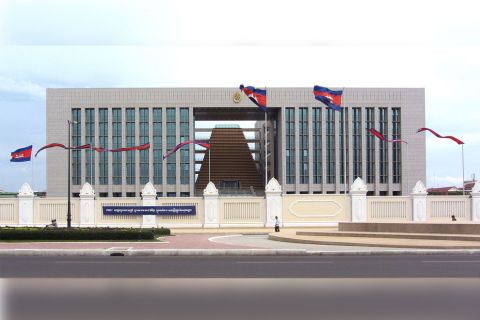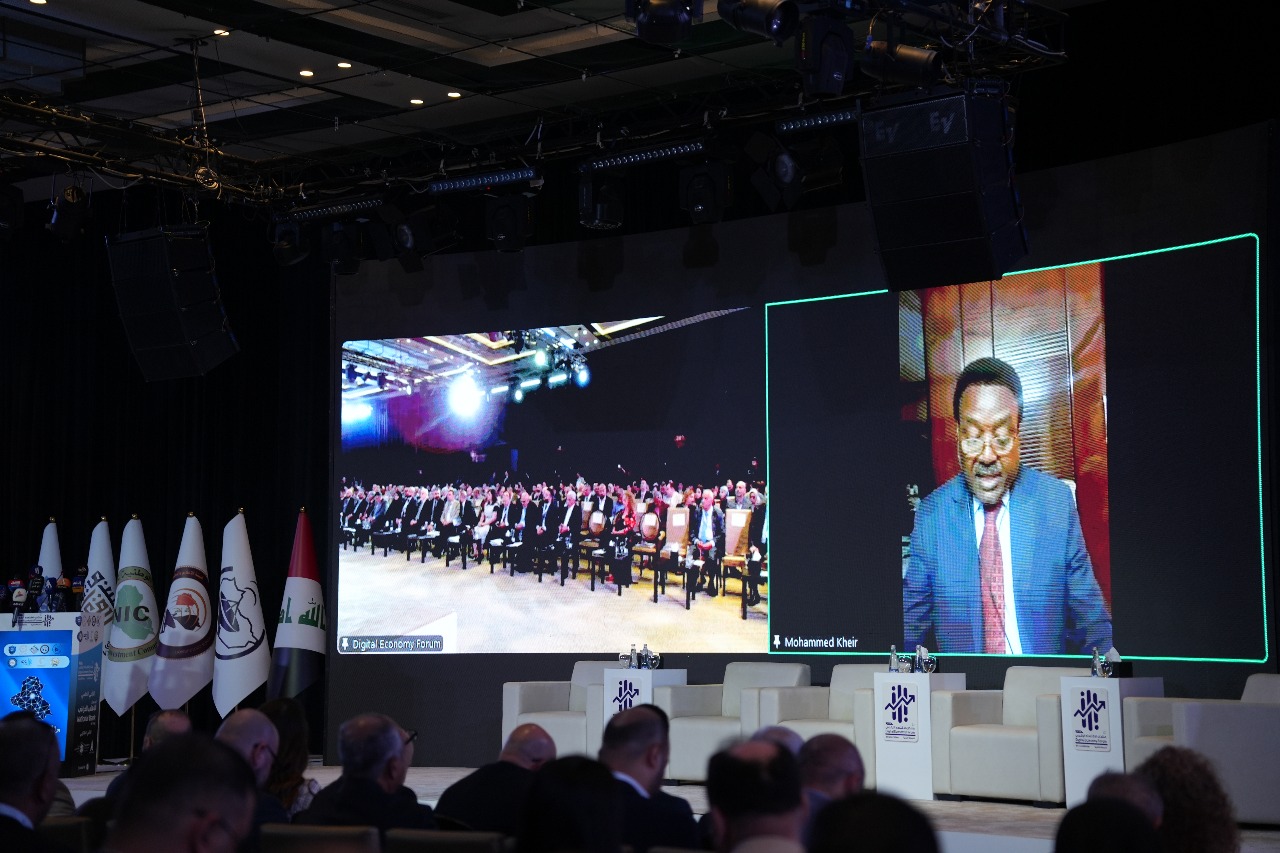April 10, 2025
Sharif Luqman Mahfud, Chief Business Officer at Smart Axiata, told Win Win Live that enabling Cambodia’s digital economy goes beyond boosting GDP. He explained that this process is an important step in creating jobs and enabling employees across a range of vertical sectors to succeed and prosper.
The CEO explained that Smart is focused on enabling the digital processes necessary to achieve Cambodia’s economic transformation, emphasizing the importance of reliable connectivity.
Mahfud noted that Smart provides coverage of 90% of the population, a key element in ensuring widespread access to digital technologies and the emerging economy.
The CEO highlighted the role of advanced technologies, including “Tri-band 8T8R,” in providing “stable and affordable connectivity.”
Smart was the first telecom company in the Asia-Pacific region to launch a tri-band RRU and was a pioneer in Cambodia in introducing TDD Massive MIMO technology and a high-quality SDA antenna. Mahfouz stated, “It improves communications and internet access across the country.”
Business and Society
The CEO pointed out that Smart Axiata’s role goes beyond simply providing connectivity services, as it includes programs to support small and medium-sized enterprises (SMEs).
He explained that Smart focuses on “helping local businesses with tailored digital solutions,” establishing itself as a comprehensive destination for business solutions and corporate social responsibility initiatives to foster local entrepreneurship.
Mahfouz noted that Smart is fully aware that digital transformation requires energy, and is transforming this into a means of expanding access to electricity grids, using its base stations as a “focal point” to deliver power to “off-grid communities while ensuring reliable telecommunications services.”
With its base stations deployed across the country, this initiative is broad in scope, expanding access to the digital economy. Smart understands that power is incomparable without security. Mahfouz stated that the company focuses on cybersecurity, runs internal training programs, and implements data integrity practices across the company, in addition to enhancing security in its consumer and enterprise offerings.
Mahfouz explained that providing digital skills to individuals is, of course, another key way to fully reap the benefits of the new economy. He added that Smart is committed to developing “local talent,” hiring and training Cambodians, and equipping them with emerging technologies and relevant skills “that meet global and regional standards.”
The CEO of Smart noted that the company is focused on what he calls “digital talent development,” and has trained more than 5,000 students since launching a joint program with the Ministry of Education and the Ministry of Posts and Telecommunications of Cambodia in 2019.
Challenges
But enabling the digital economy is not easy. Mahfouz explained that Smart is addressing many challenges, including the adoption of enabling technologies by SMEs.
He pointed out that the “high upfront costs” faced by many SMEs in adopting digital technologies represent a major obstacle, despite them being “the backbone of the economy.” Smart addresses these challenges by offering innovative pricing and billing models, including pay-as-you-go and pay-as-you-go options “with little or no initial investment” from the individual company.
Smart also works to support digital startups, a sector Mahfouz noted is currently limited in the number of companies participating.
Once again, training is a key component of Smart’s strategy: “We foster entrepreneurship through education,” Mahfouz said, explaining that the company also operates incubation centers and a $5 million “digital innovation fund.”
Smart reaffirms its leadership in establishing a venture capital fund, having established it in 2017 to invest in digital startups in Cambodia, recognizing the importance of these companies in driving the growth of the broader ecosystem and, consequently, the economy.
Another factor to consider is individuals’ access to financial technology (fintech). “There is limited access to banking services, particularly in remote areas,” Mahfouz stated, explaining that Smart is “committed to helping Cambodians access financial services through continued network expansion” and its programs covering “digital literacy and digital security.”
Artificial Intelligence and 5G Networks
Any focus on digitization must be informed by the company’s own plans. Mahfouz explained that Smart continues to view its telecommunications infrastructure and “surrounding facilities” as a key pillar of its digital efforts, focusing on continuous network improvements and “enhancing our customer experience” to support the emerging economy. This includes preparing for the deployment of 5G, a task the CEO noted goes beyond simply deploying infrastructure. Work is also underway to ensure network deployment complies with local regulations.
The CEO noted that Smart is also working to incorporate artificial intelligence “into our internal processes to enhance operational efficiency and improve network reliability” by identifying and correcting any anomalies.
Smart partners with suppliers, including Huawei, to advance its environmental, social, and governance (ESG) goals as part of its commitment to green innovation. The operator uses the supplier’s iPowerStar suite, which enables operators to switch off various network elements to reduce energy consumption while maintaining service levels.
Mahfud explained that Smart’s collaboration with Huawei is a key component of its broader decarbonization goals, which also include the use of 1.6 thousand solar panels to date and the transition to electric vehicles to achieve net-zero emissions by 2050.
He said the operator is keeping an eye on the future, working continuously to maintain a leading position in compliance practices by preparing for future changes in relevant regulations.
Mahfud explained that balancing Smart’s own operations with promoting Cambodia’s digital economy and maintaining social awareness requires a balance. The operator believes that initiatives, including affordable data packages, free daily data for students, and its diverse digital products for SMEs, contribute to bridging the digital divide in the country.
The CEO explained that Smart is “committed to long-term sustainability” and places great importance on openness and transparency in its operations, providing an annual sustainability report detailing emissions, governance, and CSR activities, all of which are publicly available.











